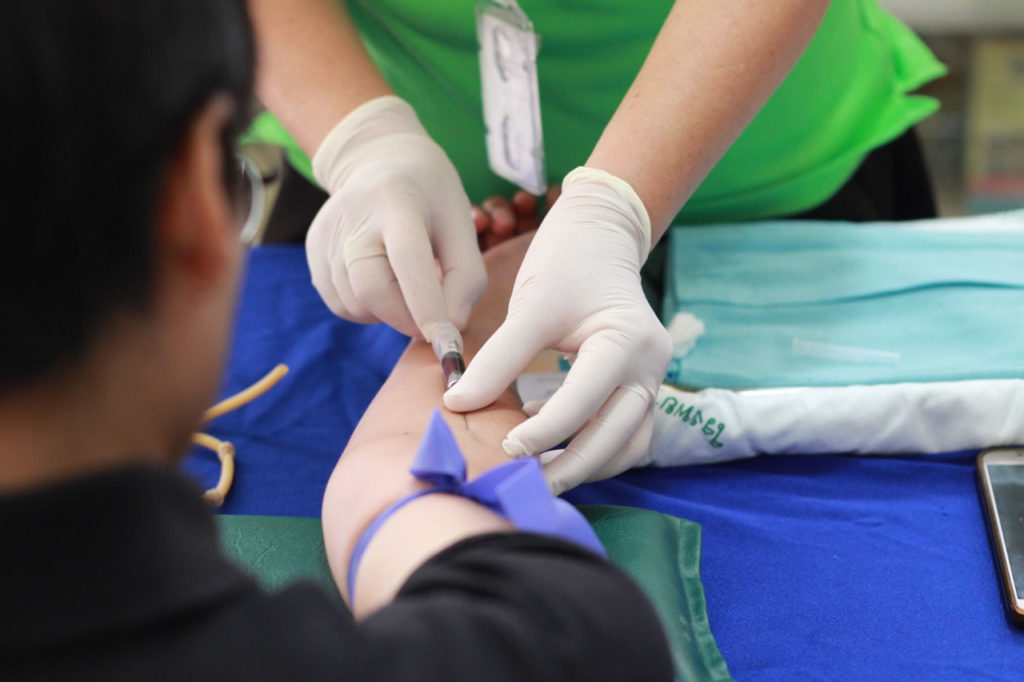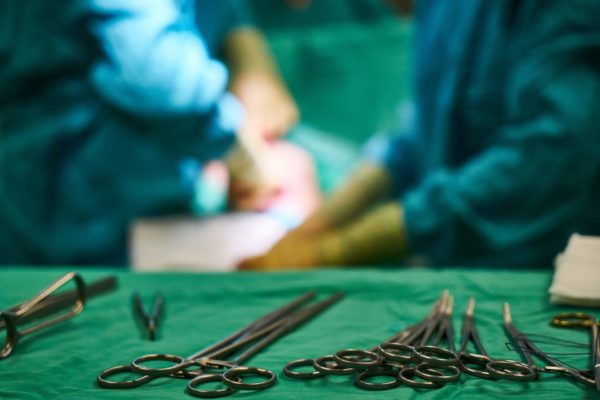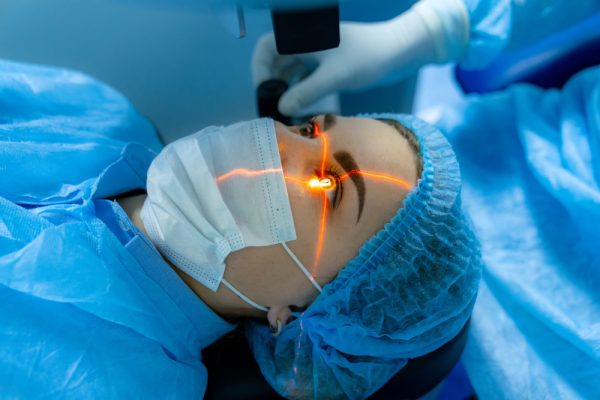Executive Summary
Since 2015, the NHS Support Federation has been monitoring the process whereby NHS organisations and councils advertise and award contracts to organisations for a wide variety of clinical and related work within healthcare. This work provides a good view of the inroads private companies and not-for profit organisations (charities and others) have made into the NHS and public health over the past few years.
Our most recent analysis, from April 2018 to the end of March 2019, has found:
- The total value of the contracts awarded was £4.9 billion in 2018/2019, down 7% on the previous year;
- The private sector won over 51% of the contract awards by number and was awarded just over 65% of the total value of awards - this amounts to just over £3.2 billion;
- By value the share taken by non-NHS organisations (private companies/not-for-profit organisations) has risen from 58.8% in 2017/18 to 65.3% in 2018/19;
- There was a dip in activity as measured by total award numbers, with only 359 awards reported on the databases, compared to 424 in 2017/18, down 15%.
Although the total value of awards and the number of awards has fallen somewhat in 2018/19, our data shows that tendering of contracts continues apace despite mounting evidence that it creates a dysfunctional system, with increasing fragmentation rather than integration. The arrival of the Sustainability and Transformation Plans (STPs) in 2016 was highlighted as a moment when things would need to change and services reorganised and integration was prioritised. Back in February 2017, NHS Chief Simon Stevens confirmed that the arrival of STPs would “effectively end the purchaser-provider split for the first time since 1990”. Data collected since this time shows that little has changed despite this announcement.
In January 2019 however, the Government seemed to finally acknowledge that competition legislation was an issue and in the government’s long-term plan for the NHS released in January 2019, it ceded to NHS England's request that the regulations that enforce competition between NHS organisations, the private sector and charities should be changed.
The Government is yet to agree, but if it happens this would be a major u-turn in policy. Making NHS hospitals and other providers compete for patients was a central pillar of the Health and Social Care Act 2012.
Note: The data is collected from two databases, the government-run ContractFinder and the European Commission's TED, where contracts are advertised and announcements of contract awards are placed. Despite tendering regulations stipulating an announcement of the award (if over a certain monetary value), it does not always happen and so the data is probably an underestimate of the amount awarded each year.
Significant Contracts
Largest contract for £600 million
In 2018/19 the number of contract awards worth over £100 million was 10, similar to the 2017/18 period (11).
The largest single contract award published in the 2018/2019 period, was in mid-March 2019, for a framework contract worth £600 million. The framework, commissioned by NHS Shared Business Services for NHS England, covers patient discharge services to adults aged 18 and over. The contract is described as “to support hospital discharges for adults and to improve the patient pathway from acute care to an appropriate care setting, streamline the transition from hospital to the community/care homes, and therefore reduce delayed transfers of care and unavoidable re-admissions to hospital.”
There were a large number of organisations listed on the framework, however the vast majority are non-NHS organisations, both private companies and not-for-profit organisations.
Other large contract awards include: in December 2018, NHS England awarded a framework contract covering the South East worth £199 million to numerous private dental surgeries for carrying our NHS-funded orthodontic procedures; and in October 2018, Somerset CCG awarded a five-year £152 million contract to Devon Doctors, a not-for-profit organisation for urgent care services in its area.
The Devon Doctors contract was for an out-of-hours service and NHS111. This contract had been held by Vocare, but the service had been found to be inadequate by the CQC in 2017. After failing to improve its performance, Vocare and Somerset CCG agreed to terminate the contract for out-of-hours service in March 2018; Vocare continued to run the NHS 111 service. In April 2018, Devon Doctors took over the out-of-hours care on an interim basis, while the procurement for the integrated service was underway.
Contract without a tender
In October 2018, the HSJ reported that the University Hospitals Plymouth Trust had entered an agreement with Care UK for the company to take over all elective orthopaedic surgery for 18 months. This agreement has been termed a 'partnership' by the trust and was not awarded via a tender process. Surgeons and anaesthetists at the NHS trust will move to Care UK's Peninsula Treatment Centre to operate on around 200 patients per month. The staff will remain trust employees but be managed jointly by Care UK. The trust is hoping that this will free up space over the coming winter.

PET-CT scanning contract controversy
At the end of the period in review (2018/2019) in March 2019, InHealth was chosen as the preferred provider to be awarded a contract for PET-CT scanning in the Thames Valley area, including Oxford. The decision to award the contract to InHealth caused considerable controversy. This contract is part of the process under which all the PET-CT scanning in England has been put out to tender. The process has taken place in two phases - I and II. InHealth was due to be awarded part of the phase II tender - lot 4 - which covers Oxfordshire and Buckinghamshire.
The seven year contract would have meant that InHealth would have replaced the world-class service provided at the Churchill Hospital, Oxford. InHealth planned to move the scanners elsewhere. After a backlash from campaigners and NHS staff, the contract was changed so that the two scanners will remain at the Churchill Hospital and continue to be operated by NHS staff and personnel from InHealth will have no role at the Churchill.
Leading Companies
Our data shows that privatisation of the NHS continued through 2018/2019 with private for-profit companies continuing to gain a large share of the contract awards. By value they were awarded 77.6% of the awards worth just over £2.5 billion. This figure was up 11.8% from 2017/2018 when the figure was just over £2.2 billion and it was 71.8% of total awards by value.
The leading companies, such as Care UK, Virgin Care and InHealth, continued to gain contracts.
Care UK
Care UK won four contracts in 2018/2019. All the awards are valued at less than £100 million, but together they add up to £156.4 million over a period of five years. As already noted, the company also entered the "partnership" agreement with University Hospitals Plymouth Trust, which was not awarded through the normal tendering procedure.
There were three contracts for integrated urgent care services and one for offender healthcare.
- In Surrey, East Surrey CCG, Guildford & Waverley CCG, North West Surrey CCG and Surrey Downs CCG awarded a contract for an IUC Service incorporating a combined NHS 111 and GP Out-of-Hours service which will provide clinical assessment and face to face treatment. This contract is worth £46.1 million and is for five years.
- In Suffolk and Essex, NHS Ipswich and East Suffolk CCG, NHS West Suffolk CCG and NHS North East Essex CCG awarded a contract worth £61.5 million to Care UK for an Integrated Urgent Care Service across Suffolk (minus Waveney) and North East Essex. The contract is for five years.
- Southampton City CCG awarded Care UK a contract worth £23.2 million for an urgent treatment centre. Contract is for an initial period of 5 Years with an optional 2 year extension period, with the contract value covering the total contract duration including full extension options.
- The fourth contract was awarded by NHS England and covers full health care services to HMP Isle of Wight, including GP services, substance misuse services and dental. This contract is worth £25.6 million and is for five years.
Virgin Care
Virgin Care's activity in the period 2018/2019 was much lower than in previous years and their involvement in contracts they had already been awarded was associated with difficulties (see Contract Failures below). The awards listed for Virgin Care are one large contract, worth over £100 million, and part of another contract in partnership with an NHS trust, which together add up to £108.2 million.
The major contract for Virgin Care was the Public Health 0-19 Healthy Child Programme (0-19 HCP) across Lancashire awarded by Lancashire County Council. This is worth £107.9 million over five years. This is the second award of this contract. Virgin Care was originally awarded the contract in 2017, but this award was successfully challenged in court by Lancashire Care Foundation Trust and Blackpool Teaching Hospitals FT, joint bidders for the contract. As a result the evaluation process had to be carried out again.
Virgin Care was once again awarded the contract by the council in November 2018; the company took over the contract in April 2019, with around 160 staff transferring to the company.
InHealth
InHealth was the most successful company in the diagnostics arena in 2018/2019, with nine contract awards for the company and two with the company sharing the award with several other companies. All together the company was listed on almost 30% of awards in diagnostics and the total value was £30.2 million or 13.8% of total value of the diagnostics awards.
The company carries out a full range of diagnostic services - MRI, CT, endoscopy and radiology, plus audiology services. The majority of its contract awards this year were for direct access community diagnostics services, including radiology and audiology. These are commissioned by CCGs and involve the GPs within the CCG area sending patients to appointments with InHealth rather than the local hospital trust.

InHealth’s highest value contract award was for a seven year community gastroenterology service for NHS Ipswich and East Suffolk CCG and East Suffolk and North Essex NHS Foundation Trust. This is valued at just over £14.8 million and includes the provision of a community endoscopy service which includes direct access endoscopy, a Gastro Prior Approval Service, the potential to offer new services such as; prevention work, triage of referrals, supporting primary care and the signposting of patients, and the ability to provide extra community endoscopy capacity to accommodate anticipated future increases in demand, if required.
In March 2019, InHealth was chosen as the preferred provider to be awarded a contract for PET-CT scanning in the Thames Valley area, including Oxford. The decision to award the contract to InHealth caused controversy (see above).
Other contracts include: in January 2019, InHealth was awarded a place along with nine other suppliers on a framework contract worth £100 million to provide remote teleradiology services to hospital trusts over much of the north of England; in February 2019, the company was awarded a place on an AQP (any qualified provider) contract for adult audiology services in Hammersmith & Fulham, Central London, and West London; and in March 2019 the company was listed on an AQP contract for a community physiotherapy service as part of musculoskeletal services in North East Lincolnshire.In the same month and awarded a place on a framework contract for remote teleradiology - the remote assessment of diagnostic images - and a contract to provide diagnostics services to prisons in the north of England.
Not-for-profit Sector
The value of contracts awarded to the not-for-profit (NFP) sector - charities and community interest companies - fell by 13.6% in 2018/2019 to £761.6 million.
Many not-for-profit organisations are very locally based, but there are a few that work across England. This is likely to be a sector where contracts often fall below the value level where they have to published and so is likely to be an underestimate of the true value of awards.
The largest contract awarded to a NFP in 2018/2019 was the contract for out-of-hours care in Somerset to Devon Doctors for £152 million (details above). Devon Doctors is a social enterprise company owned by all the GP surgeries in Devon.
A significant NFP in 2018/2019 was the charity Change, Grow, Live (CGL), which was particularly successful at gaining contracts for substance misuse (drug and alcohol) addiction services at various locations in England, with eight contract awards with a combined value of £110.1 million.
Sector Analysis
GP services
In terms of type of service, the largest proportion of awards in 2018/2019 were made for GP services (73), with just over half of these being for contracts to provide extended/enhanced access (50.7%).
All 195 CCGs in England were required to have arranged extended-hours GP appointments for 100% of their population by 1 October 2018. This extended or enhanced access was part of David Cameron’s coalition government’s plans to turn the NHS into a 24/7 service. What we have found is that the vast majority of awards for such contracts went to the private sector.
Non-NHS providers (including not-for-profit organisations) were awarded just over 71% of the contracts or 62.4% in terms of value (£338.5 million).
Prominent companies that have gained a significant number of awards in 2018/2019 are GTD Healthcare and Modality Partnership. Other private and NFP companies active in this area are IntraHealth, AT Medics, SSP Health Ltd, One Medicare Ltd and City Health Care Partnership CIC.
GTD Healthcare
This not-for-profit company, also known as GoToDoc, won three contract awards for GP services in 2018/2019 in the Manchester area with a total value of just over £34 million.
Modality Partnership
Modality Partnership is known as a GP super-partnership, where numerous GP practices around England have come together to form one single partnership. The organisation has a central management team based in Birmingham. The organisation won contracts for two GP services, worth£24.2 million and a share in a contract for diagnostics.
The organisation has GP practices in Birmingham and Walsall, Hull, Airedale, Wharfedale and Craven, Wokingham, East Grinstead, Burgess Hill and Lewisham.
Diagnostics (inc audiology)
Private companies were dominant in the diagnostics market in 2018/2019. There were 37 contracts awarded in diagnostics in 2018/2019, only two of which went to an NHS provider and four to a combination of NHS/non-NHS. The total value of the awards for diagnostics was £219.2 million, £162.5 million of which went to non-NHS organisations. The two leading companies in terms of contracts won in 2018/2019 were InHealth and Everlight Radiology.
InHealth
InHealth was the most successful company in the diagnostics arena in 2018/2019, with nine contract awards for the company and two with the company sharing the award with several other companies. All together the company was listed on almost 30% of diagnostics awards and the value was £30.2 million or 13.8% of total value of the diagnostics area.
One of InHealth’s highest value contract award was a seven year community gastroenterology service for NHS Ipswich and East Suffolk Clinical Commissioning Group and East Suffolk and North Essex NHS Foundation Trust. This is valued at just over £14.8 million and includes the provision of a community endoscopy service which includes direct access endoscopy, a Gastro Prior Approval Service, the potential to offer new services such as; prevention work, triage of referrals, supporting primary care and the signposting of patients, and the ability to provide extra community endoscopy capacity to accommodate anticipated future increases in demand, if required. See above for details of the PET-CT scanning contract controversy, where InHealth would have been awarded a large contract in the Oxfordshire/Buckinghamshire area.
Everlight Radiology
In terms of number of awards, Everlight Radiology was very successful in 2018/19 with six awards, however each contract is fairly small and the total value was just under £11.6 million.
Everlight Radiology’s business is specialised in the area of remote diagnostics. The company is sent scans and its team assess and diagnose. The company is often called upon to do short-term contracts to reduce backlogs of scans due to a shortage of radiologists and consultants in the NHS. Due to the remote technology used, Everlight’s employees can be based anywhere in the world, with many in Australia working over the UK night.
Public Health
There were 90 contract awards in the area of public health, with all contracts commissioned by councils across England. The largest number of contract awards at 25 was for services for substance misuse (drugs and alcohol), followed by sexual health services at 10, then smoking cessation at nine.

The total value of the public health contracts was £1.15 billion, £619.1 million of which was awarded to non-NHS organisations (54%).
The highest value contract award was to the Chelsea and Westminster NHS Foundation Trust for the provision of sexual health services as part of the London Sexual Health Transformation Programme, commissioned by Westminster Council. The five year contract is worth £182 million. This was followed in value by the Lancashire 0-19 healthy child programme contract worth £107.9 million awarded to Virgin Care services.
Contract Failures
In 2018/2019, activity in the area of NHS contracts has seen a number of instances of legal action and early withdrawals from contracts - all of which should be regarded as a failure in the contract or the tendering system. These failures come at a price - such as the cost of defending or mounting legal actions for the NHS, time spent dealing with the problem and finding new organisations to run services, and disruption to services.
Legal challenges
Legal challenges to contract awards or related to contracts have come from both NHS and non-NHS organisations.
Lancashire healthy child programme challenge
A legal challenge begun in January 2018, and which ran through 2018/2019, was by the two NHS trusts, Lancashire Care Foundation Trust and Blackpool Teaching Hospitals FT, which challenged the award in December 2017 to Virgin Care of a five year contract for the 0-19 year healthy child programme in Lancashire by Lancashire County Council. The contract covers school nurses, health visitors and many other services for young people. Previously it was run by Lancashire Care FT under a contract that expired at the end of March 2018. The two trusts had submitted a joint bid for the contract. The challenge meant that the formal awarding of the contract was suspended for several months.
In June 2018, the decision by Lancashire county council to award this £104 million contract was thrown out by a high court judge as the local authority’s process was deemed to be flawed in awarding this contract to Virgin Care.
The trusts’ were granted an extension for providing services until April 2019 whilst legal proceedings continued. However, when the bids were re-evaluated overseen by an independent panel in October 2018, the council re-awarded the contract to Virgin Care.
Dispute in Surrey
In October 2018 in Surrey, it was reported that a community provider’s contract was extended by four months, pending a court dispute over an integrated care deal. Central Surrey Health, a social enterprise providing community services in the county, took Surrey Downs CCG to court, claiming it breached a contract by continuing with an integration project in which the partners had fallen out.
CSH was one of five members of the Integrated Dorking, Epsom and East Elmbridge Alliance, which comprised of the company, three GP federations and Epsom and St Helier University Hospitals Trust.
Circle disputes Nottingham contract
In March 2018, Circle pulled out of a bid for a renewal of the contract to run Nottingham NHS Treatment Centre for another three years. The contract was worth £150 million. The company withdrew because in its view the amount of money on offer was not sufficient to deliver services on a “sustainable basis” at the treatment centre. The value of the contract had been reduced to £50 million per year from £67 million per year.
Circle threatened the CCG commissioners with legal action over the contract and as a result of the threat, in early May 2018, the commissioners of the Nottingham contract, Rushcliffe CCG, allowed Circle to continue with the contract for a further year. Following a new procurement process, Rushcliffe CCG awarded the contract to Nottingham University Hospitals NHS Trust (NUH). In January 2019, Circle launched a second legal challenge against the CCG claiming the Trust can’t possibly treat NHS patients for less money, and that bringing the contract back in-house would be “unrealistic” and “not in patients’ interests”. In May 2019, Circle lost this legal action against Rushcliffe CCG and NUH was free to begin the five-year contract to run Nottingham Treatment Centre.
Early withdrawal from a contract
There have been several instances of private companies withdrawing early from contracts with the NHS, this has usually been due to disputes over money and private companies realising that they will not make sufficient profit from the contract. In other cases companies have been asked to leave due to poor performance.
Virgin Care withdraws from East Staffordshire contract
Virgin Care won a £280 million contract in March 2015 to provide services for the frail and elderly in East Staffordshire. Virgin Care was to be the prime provider under this seven-year contract and could sub-contract the work to other organisations. This was a fixed-price contract.
The contract was dogged by contractual and financial issues, however. In March 2017, CCG board papers seen by the HSJ revealed that Virgin Care and East Staffordshire CCG were in dispute over contractual arrangements. This dispute impacted on the finances of the Burton Hospitals Foundation Trust as the trust was unable to agree a contract with Virgin Care under the prime provider model due to the CCG dispute.
In October 2017, HSJ reported that Virgin Care was demanding more money from the CCGs. No amount has been officially confirmed, but HSJ noted "that sources have told HSJ the private provider has asked for nearly £5m extra." According to HSJ in October 2018, the CCGs did not provide an extra £5 million to Virgin Care and as a result Virgin Care terminated parts of the contract; the company no longer acts as a prime provider commissioning services such as hospital-based services, 111 and out-of-hours services. Virgin Care did agree to continue to provide the community services, which it has direct responsibility for, including specialist nursing, community nursing, care coordination and care navigation. The CCGs involved told HSJ that from June 2019 they would contract directly with the services, instead of Virgin sub-contracting.
In April 2019, however Virgin announced that it will leave the contract entirely in April 2020, three years early. The reason given is that Virgin and the CCG were unable to come to a new financial agreement. Virgin stated that it is not able to run the service on the money provided by the CCG and it is not prepared to make up the shortfall.
Capita asked to leave contract work
Capita took over the coordination of primary care support services in September 2015. However, since the contract began there has been an never-ending series of problems. Finally, in May 2018 the National Audit Office (NAO) produced a report on the contract noting that patients had been “put at serious risk of harm” due to Capita's failures. The report noted how both parties grossly underestimated the size and complexity of the task and the risks involved.
In November 2018, the BMA reported that Capita had failed to deliver correspondence relating to cervical cancer screening to 47,700 women. The BMA called Capita’s running of services ‘nothing short of shambolic’ and said it is ‘frankly appalling’ that the private company’s ‘gross error’ may have put patients at risk. The letters relate to appointment invitations or reminder letters, but does include some screening results. The BMA has demanded that the contract with Capita be stripped back and the contract taken back in-house.
Finally, in March 2019, Simon Stevens told the Public Accounts Committee that Capita would be stripped of its contract to run the cervical cancer screening programme.








